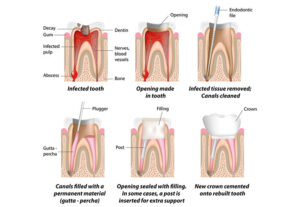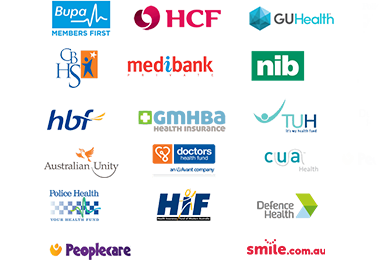If you have a cold sore, you may have a question as to whether or not you should make an appointment at Your Gold Coast Dentist.
We normally say no, because having an appointment with a cold sore can spread the virus to other areas of your mouth, face, or neck.
It is ideal to reschedule until after your cold sore is fully healed (8-10 days).
If you are in pain or have an emergency, however, absolutely come by. We take all the precautions needed to ensure the virus doesn’t spread including eye protection, gloves, jackets, handwashing protocol, disinfectants after each patient, and state-of-the-art sterilisation procedures.
What are cold sores?
Cold sores, also called fever blisters, are small, fluid-filled ulcers that erupt on your lips and around your mouth. They typically last from 5 to 14 days and cause discomfort as well as embarrassment due to their unpleasant appearance.
Most cold sores are caused by HSV-1, also called the Herpes Simplex Virus. According to the World Health Organization, nearly 70 percent of adults aged 50 and older have HSV-1, so if you suffer from them, you are not alone.
Once you have the cold sore virus, it does not go away. Instead, the virus sits dormant in your body until a trigger causes it to break out on the surface of your lips. The best way to avoid a cold sore is to avoid exposure to certain triggers.
The best way to treat an outbreak is to respond early. Finally, it is also important to know how to prevent transmission of the virus.
If you suffer from cold sores, Your Gold Coast Dentist can help you. Just follow the tips below to avoid cold sores in the first place, and deal with them early if they do erupt.
The best defence is a good offence!
The cold sore virus usually ‘sleeps’ in your nervous system. However, certain triggers can bring the virus to life.
Here is a list of some common triggers:
- Illness
- Fatigue
- Stress
- Fever
- Ultraviolet (UV) exposure (e.g. sunlight and particularly sunburn)
- Mouth trauma
- Hormonal changes
Obviously, an important tactic to avoid cold sore outbreaks is to stay away from triggers that affect you or be aware of how to limit the impact of those triggers.
Catching cold sores early!
Catching and treating cold sores during the start of an outbreak won’t necessarily prevent them from forming, but it can reduce the impact and length of the outbreak. Oral medication is beneficial, particularly if taken early.
If you develop cold sores, you may find topical treatments useful:
- Acyclovir (prescription only)
- Penciclovir (prescription only)
- Docosanol (OTC)
If you suffer from frequent cold sores or prefer oral medication, your doctor may prescribe:
- Acyclovir
- Valacyclovir
- Famciclovir
If you suffer from regular or severe outbreaks, talk to your doctor about having a prescription on hand. Save the time it takes to get a prescription and use that time to fight back against cold sores.
Dealing with symptoms
If you do get a cold sore, the strategy is to deal with symptoms:
Hands off! Poking, peeling, or rubbing a cold sore can only lengthen the healing process or lead to infection.
Cold compress. Placing a damp, cool towel on the cold sore for 10 minutes at a time can decrease redness, swelling, and pain.
Avoid citric acid. While citric acid is good for you, it can aggravate a cold sore and increase pain. During a cold sore breakout, replace fruit with Vitamin C tablets.
No pain IS gain! A cold sore is annoying enough. Take acetaminophen or ibuprofen (taking heed of usage warnings) to reduce the pain and swelling caused by a cold sore.
Use OTC remedies. Benzocaine, Docosanol, and benzyl alcohol are ingredients in topical treatments that relieve symptoms and reduce pain.
Stopping the spread of cold sores
During an outbreak:
- Avoid kissing or skin contact
- Avoid sharing lip balm, lipstick, utensils, towels, and similar items
- Avoid touching other areas of your body
- If you touch a cold sore immediately wash your hands with warm water and soap
After an outbreak:
- Wash any items that have come into contact with your lips (e.g. your pillowcase or towels)
- Throw away hygiene or beauty items that were used around or in your mouth
Getting the most at Your Gold Coast Dentist!
Your Gold Coast Dentist is your perfect dentist in the Parkwood area. Our practice combines the most advanced dental techniques available with high levels of skill and experience.
We provide the highest level of quality and comfort for patients of all kinds. From routine checkups to the most complicated procedures, Your Gold Coast Dentist can treat you and your family with the care and respect you deserve!
Call (07) 5594 6699 or visit us at Gold Coast Parkwood Piazza, Shop 10/300 Olsen Avenue in Parkwood near Southport North.





